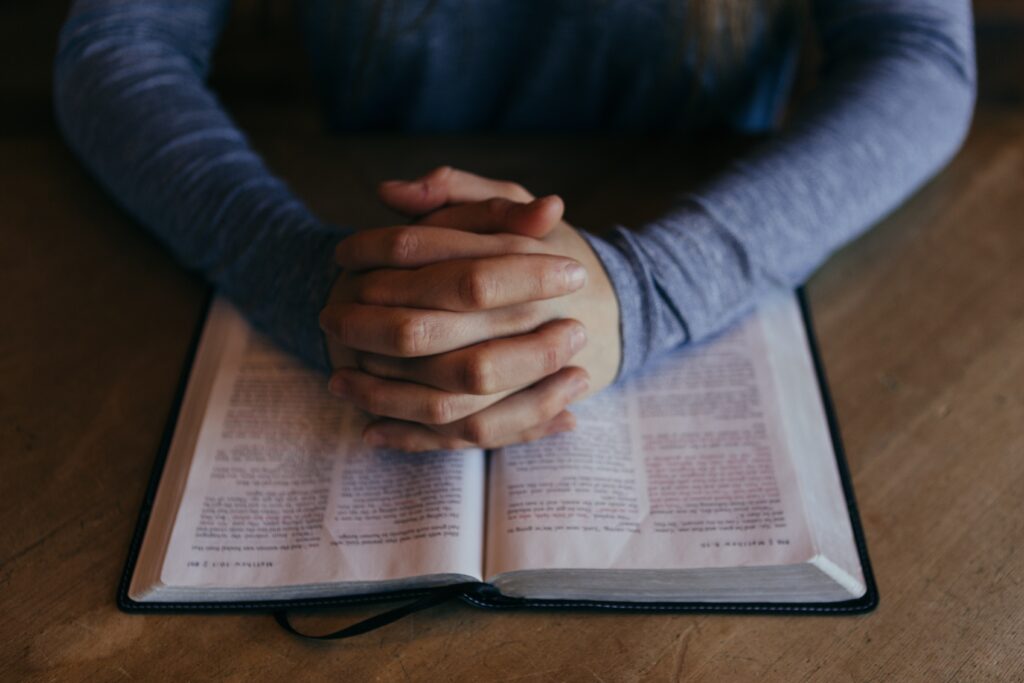
June 5, 2023
Learning To Pray … Again: Part Four – The Steward’s Confession
We are on a five-week journey reflecting on Jesus’s instructions to His disciples on how they should pray – what we know as The Lord’s Prayer. We are considering how The Lord’s Prayer reflects the journey of the faithful steward, and to do so, we are breaking it down into five sections:
- The Steward’s Cry – Our Father, hallowed be your name
- The Steward’s Commitment – your kingdom come, your will be done
- The Steward’s Confidence – our daily bread
- The Steward’s Confession – forgive us as we forgive
- The Steward’s Courage – deliver us
We are using the text from Matthew 6 from the New International Version, and today we will meditate on the following words, “Give us this day our daily bread.”
I hope to share the wonderful blessing as the Spirit teaches us how our commitment to being faithful stewards is beautifully woven into this way of praying. While that shouldn’t surprise us, it can revolutionize our prayer life. So I hope there is a substantial blessing for you in this journey.
The Steward’s Confession
In the fourth section of His prayer, Jesus invites us into confession and reconciliation. As stewards, this prayer is a heartfelt plea that God would keep our hearts open toward Him. Confession is God’s way of removing every obstacle that stands in the way of our journey of becoming more faithful stewards. Jesus knew the enemy would place such obstacles in our path. He taught us that the presence of sin would keep us from experiencing the abundant life He wants for us. It is that life the enemy seeks to kill, steal, and destroy (John 10:10). In the strategy of war, the greatest way to defeat an enemy is to destroy his ability to wage war on you. This is precisely what this humble prayer of confession accomplishes.
Confession cleanses our heart toward God and opens our spirit toward our neighbor. Both these works of the Holy Spirit are seen in this petition. Through the simple prayer of “forgive us our sins,” Jesus directs our gaze to the attitudes, lies, prejudices, and brokenness that keep us from Him. We find them in all four spheres of relationship. Sin robs us of intimacy in our relationship with God, distracts us from maintaining a healthy self-identity in Christ, bars us from loving and serving our neighbor with a pure heart, and deceives us into believing we should not be concerned with all God has created for us. As significant as these obstacles may seem, Jesus knows they can be swept away with this simple but powerful prayer of sincere forgiveness. Jesus invites us to live as stewards set free from the bondage these sins represent. This is absolute freedom, only found on the other side of the cross, through sincere repentance and with a heart that passionately pursues the will of the one who owns all things.
A heart cleaned through sincere confession is open toward our neighbor. Here we see how this section of the Lord’s prayer mirrors Jesus’s great commandment. It starts by affirming our love for God, our heavenly Father who is to be hallowed. It then provides the means for cleansing our spirit through repentance, which restores a right relationship with ourselves as redeemed children of God. What results is our desire and ability to forgive our neighbor, which may be the highest form of love.
If we are to live as stewards in God’s kingdom, we must pray that God would give us the freedom to hold lightly to all things that would usually cause us anger, offense, and bitterness. These are the insidious weapons of the enemy. They take root in our spirit, darken our eyes, and harden our attitudes. If they are not rooted out and destroyed through forgiveness, they will fester into hatred, self-righteousness, and soul-sucking cynicism. This is the rotten fruit of ownership, and we must pray against it daily.
That is why Jesus links these two steps so integrally. When we have been set free through confession, the Holy Spirit can work in us and our attitude toward our neighbor that refuses to take offense or harbor bitterness. Instead, we become faithful stewards of the grace of God (1 Peter 4:10), reflecting his unmerited forgiveness through our comparably small but not insignificant forgiveness of all of those with whom we journey. As we do, we bear witness to God’s kingdom in our world and are set free as avenues of His grace.
I encourage you to pray this prayer with all your heart. Let confession set you in the right relationship with God, and forgiveness restores the right relationship with your neighbor. Both are the free and joyful work of the faithful steward.
Connect With Us
Connect with us and others in The Center for Steward Leader Studies community to stay informed on activities and opportunities.
